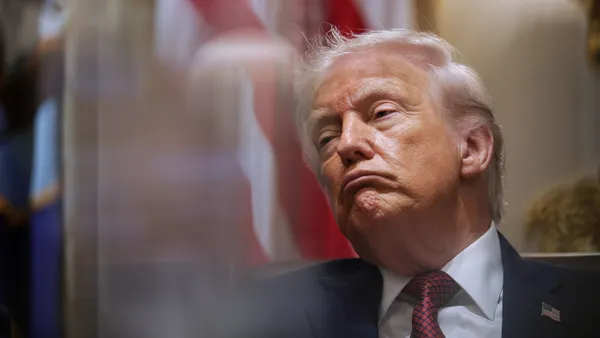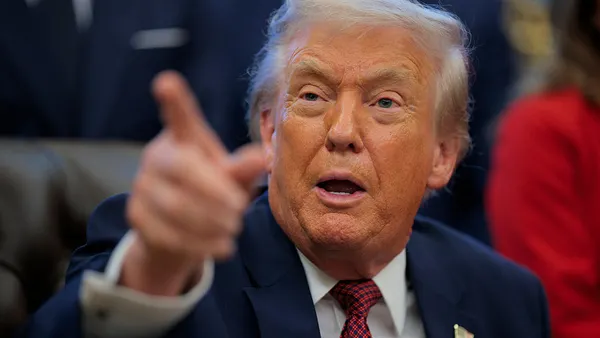Dive Brief:
- President Trump's proposed U.S.border wall could be funded through a 20% tax on imports from Mexico as a part of his overall tax reform initiative, the White House said Thursday, according to CNN.
- Sean Spicer, the new White House Press Secretary, said the President believes the 20% import tax will raise $10 billion per year, which Trump believes is more than enough to fund the building of a wall along the U.S.-Mexico border. Mexico's 2015 US exports were approximately $316.4 billion.
- The announcement came a day after the White House met with Mexico's lead economic ministers and hours after the President of Mexico called off his visit to Washington, D.C., refusing to pay for the wall.
Dive Insight:
This sequence of events may suggest a trade war is looming between the U.S. and Mexico, but it is important to note neither Mexico nor the U.S. can raise discriminatory tariffs without cause under the terms of NAFTA, of which both countries currently belong.
In addition, a closer look at White House Press Secretary Sean Spicer's comments suggest Trump does not intend a punitive tax against Mexico, but rather that the White House intends to use funds resulting from the GOP's proposed comprehensive tax reform to raise $10 billion and pay for the wall. Under the GOP's plan, imports would be subject to a 20% "border adjustment tax," which companies based in Mexico would have to pay, just as all other foreign-based companies.
The sequence of events that led to the announcement — from President Trump's announcement he would build a border wall, to the Mexican President's decision to cancel his visit to Washington and deny paying for such a wall — should not alarm supply chain managers. The two countries are still subject to the rules of NAFTA, and can only free themselves of such ties after withdrawing (which requires 180-days' notice), under emergency circumstances or as a matter of retaliation or trade agreement enforcement. None of those conditions currently apply in relations between the two countries.
What was learned from this announcement however was that the Trump administration seems to be warming up to the idea of the GOP's border adjustment tax as a revenue-raising measure, despite widespread industry opposition.













